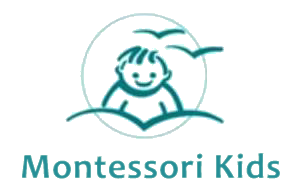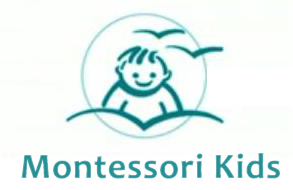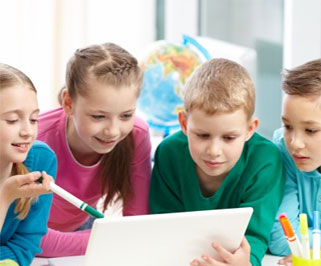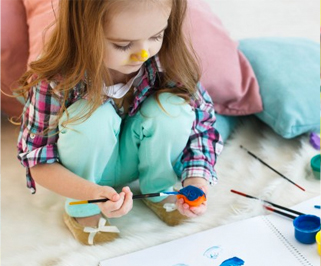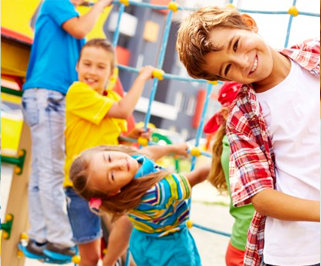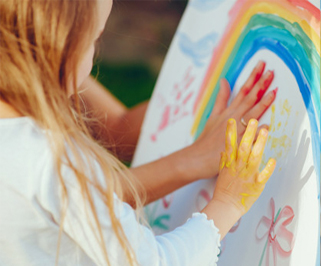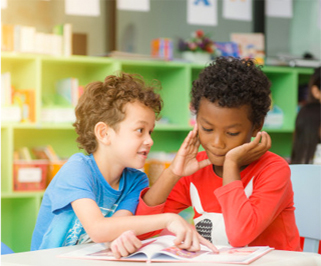The classes
The parents' committee
The timetables
Meals
The daycare
School transport
Activities
The excursions
The events
The classes
The Montessori Kids school is a small school located in Walloon Brabant and in a rural and green setting. The school is divided into four age groupsThe class welcoming children from 18 months to 3 years has a warm and attractive atmosphere. This prepared environment fully meets the needs of children under three years old.
It is a class in which all the furniture and educational materials are adapted to the size of the child and made of noble materials, whose colors encourage children to work serenely. This atmosphere is nothing like a classic early childhood care environment. The child will have the freedom to move through different work areas composed of educational activities that develop their autonomy, self-confidence and concentration. They will be able, throughout the class, to find activities to develop and refine their large and fine motor skills. This atmosphere will give each child the opportunity to work individually, with a teacher, through group activities such as dancing, singing, reading, etc.
This environment will provide academic well-being through activities with a specific goal, social well-being through group activities, exchanges and learning about community life and finally, psychological well-being through an atmosphere adapted to their needs. Each child is free to choose the activities they want to do. Every morning, the children will have, among other things, the opportunity to make bread, prepare their snack, take care of themselves and the environment through “Practical Life” activities.
This class is like a real anthill where each of its members is busy with a specific task that strengthens and develops each person’s self-esteem, group spirit, while growing individually.
In a Montessori school, a class that welcomes children between 3 and 6 years old is called the “Children’s House”.
In this “Children’s House”, the child is free to move around and choose the activity they want to do.
This freedom allows each child to progress and approach fundamental academic concepts at their own pace.
These activities are stored on shelves to be within the child’s reach.
Through a classroom atmosphere adapted to their needs, children will be invited to explore, choose, manipulate and store educational activities as many times as they wish.
They have the option of working either on a mat, at the table, or observing one of their classmates.
The “Children’s House” is divided into four main work areas:
Practical Life,
Sensory,
Mathematics,
Language.
Text currently being written…
Text currently being written…
These groups are divided into four classes, each class opening onto a
large garden converted into a playground and vegetable garden for the children. The layout
of these groups allows them to develop in an atmosphere where a serene and soothing educational atmosphere reigns
based on cooperation and not on competition.
Cooperation in each class will happen naturally.
Older children will share their knowledge with younger children in their class.
These same younger children will enthusiastically follow the older and/or more knowledgeable children.
The parents' committee
The Montessori Kids school takes care to separate the parents' committee for each class, into 2 distinct groups.The role of the delegates
The two partner delegates (French and English) are present in each class to:
Help the teachers during specific events (Thanksgiving, Christmas, Carnival, end-of-year meals)
Listen to parents for any school or educational problems. The delegates will first report the problem encountered to the chairman or co-chairman and, after discussion, we will inform the management so that they can act accordingly.
Organise delegate/parent meetings and choose the dates: October, December, early March and late May.
Be present for committee meetings (as often as possible).
Get involved (according to their availability) to resolve more general issues (parking, sports day, excursions, etc.)
The role of the chairman and co-chairman
The chairman will chair each committee meeting with the delegates and the co-chairman will replace him if he is absent. The chairman is our link between the committee and the school management. The other delegates will not go to see the management on their own initiative.
During these meetings:
The person who receives at home writes the agenda and sends it by email to all the other delegates (at the latest 3 days before the date of the meeting).
Their partner takes notes and sends the document to the others with the actions to be taken for each (at the latest 1 week after the meeting).
For delegate/parent meetings:
They are generally held at the school.
The two partner delegates are present.
The notes taken during these meetings will be given to the chairman who will forward them to the management.
The timetables
Montessori Kids School is a small school located in Walloon Brabant in a rural and green setting. The school is divided into four age groupsChildren
- Expected arrival between 8:30 a.m. and 9:00 a.m.
- Departure scheduled for 12:00 p.m. or 3:15 p.m. (4 days a week)
- Departure: 12:00 p.m. (Wednesday)
Children
- Expected arrival between 8:30 a.m. and 9:00 a.m.
- Departure scheduled for 12:00 p.m. or 3:15 p.m. (4 days a week)
- Departure: 12:00 p.m. or 3:15 p.m. (Wednesday)
Children
- Expected arrival between 8:20 a.m. and 8:30 a.m.
- Departure scheduled for 3:45 p.m. (4 days a week)
- Departure: 12:00 p.m. (Wednesday)
Children
- Expected arrival between 8:20 a.m. and 8:30 a.m.
- Departure scheduled for 3:45 p.m. (4 days a week)
- Departure: 12:00 p.m. (Wednesday)
Upon departure, the child will not be handed over to anyone other than his or her father or mother (unless requested in advance), a request made at the latest when dropping off the child in the morning. In addition, this request must be confirmed in writing specifying the identity of the person authorized to pick up the child. When a parent enters the school buildings and shows themselves to their child, they are then under their responsibility. (It is imperative to close the doors and barriers)
Meals
At Montessori Kids, your child is encouraged to bring their own meals and snacks to fill their day properly.Your child is invited to bring a fruit that he will eat, if he wishes, during the morning.
If he stays all day at school, please provide him with a meal that he will put in the classroom refrigerator each morning. This meal can consist of toast and/or a hot dish that can be reheated in the microwave oven, available in each classroom. It is preferable not to give him sweets or chewing gum. The child’s first name must appear on all the components of his meal.
For children who stay in daycare, we ask you to bring a snack. The child will have the opportunity to enjoy it around 3:45 p.m.
The child will have mineral water available throughout the day.
The daycare
The Montessori Kids school provides you with a daycare so that your children can stay in a safe and healthy environment, while waiting for your arrival.Parents have the possibility to leave their children at school until 5pm, except on Wednesdays (there is no daycare).
The cost of daycare is €5 per hour and payment is made at the end of each month.
After 5pm, the rate increases to €10 for ten minutes. The school closes at 5:30pm!!
During daycare, children have the possibility to eat a small snack. If the weather permits, children can go and play in our large garden.
In case of bad weather, activities in the form of games or coloring are organized.
School transport
The Montessori Kids school organizes school transport ensuring the child is picked up at home, as well as their return home.For children aged 2 to 12, morning pick-up is scheduled for 7:00 a.m. and return at 3:45 p.m.
This school bus service, within a 15km radius around the school, is available at a cost of €3,500 per year, in addition to tuition fees.
Within a radius of between 15km and 30km, the price is €4,000, in addition to tuition fees.
When parents decide to use this service, the commitment is made for the entire year. It is therefore not possible to cancel during the year, nor to obtain a total or partial refund of transport costs.
The pick-up time is determined by the school according to the number of children and their home.
Occasionally, it is possible to use the school transport organized by the school provided that the parents notify the school 48 hours in advance and that the child’s home is within a 15 km radius of the school.
This occasional transport will be billed at €25 for a return trip and €15 for a one-way trip.
Registration for the school transport service can be done during the school year provided that there are still places available.
If the parents register their child for the school bus service, the transport costs will be calculated pro rata for the remaining months.
Activities
The Montessori Kids school offers several activities that your children may enjoy and that are beneficial to their physical or psychological development!Rhythmic education raises awareness of musical language through bodily experience.
Through music and rhythm, the child learns to listen, react, and control his neuromuscular reactions. This activity is permanently open to all experiences that develop psychomotor and sensory education. The nuances offered by music allow the child to get in touch with his emotions, and to express them with his whole body. Through play, he self-disciplines, develops his body schema and invests space.
The “Rhythm and Expression” classes are all about the pleasure of:
Singing and dancing;
Miming, expressing and grimacing;
Handling musical instruments;
Becoming a conductor or group leader;
Improvising and searching alone, in pairs or in a group.
Rhythmic education will be given by Vinciane Cruysmans, who graduated in 1982 from the Dalcroze Institute in Belgium. In 2004, she also obtained a specialist diploma in the helping relationship through Gestalt therapy.
These courses in musical awareness, rhythm and expression are given in French.
If the parents opt for the program comprising 5 mornings + 5 afternoons, the child is automatically registered for the swimming lessons organized on Wednesday afternoons.
The children go to the private swimming pool “Aqualasne” located in Lasne, accompanied by their respective teachers.
This activity is organized for children aged 3 to 6 on Wednesday afternoons.
The children leave school around 1 p.m., after their lunch. Transport between the swimming pool and the school is provided by the school bus.
The group activities are organized by a professional and last ¾ hours in the water.
The group will be supervised continuously by the respective teachers.
The children are expected to return around 3 p.m.
These lessons will allow your child to feel comfortable in the water and learn the basic swimming movements.
In addition, we believe that this will give them the opportunity to develop their independence.
The child must have a bag containing a swimsuit, a towel and a hairbrush.
The financial contribution is included in the tuition fees specific to the chosen program.
Parents can opt for a shorter program but including Wednesday afternoon so that their child can take the swimming lesson.
In this case, a supplement of €700 to cover the cost of entry to the swimming pool, transport and insurance will be charged.
Children between 6 and 12 years old have, as part of their general courses, the opportunity to go every week to practice sport, for an hour and a half per week, at the Lasne sports center which provides us with their premises, their know-how as well as their sports instructors.
Each year, at the beginning of the school year, a detailed and diversified program is established by the management and the sports instructors.
The aim of this is to introduce children to well-known and lesser-known sports, so that this discovery gives them the desire to practice a specific sport more intensively.
In one school year, they will practice more or less eight different sports.
Maria Montessori recommended that children be exposed to art on a daily basis.
She considered that any work of the hand reflected a little of the spirit of the times and the mind of its creator.
Art is the expression of sensory impressions and sensitive interpretations of the world.
The child discovers that by using his five senses, he apprehends the world, reacts to it and interprets it according to his feelings, emotions and feelings.
In this introduction to the visual arts, it is not a question of delivering a master class in art history or learning to become an artist.
It is rather a question of giving something to look at, to touch, to invest in and to practice.
In terms of art history, the introduction offers some ideas for teaching the child to put words to things in order to train him to look.
We provide images and objects, we draw attention to colors, shapes, perspectives.
We give each child the opportunity to express their point of view without providing them with a ready-made interpretation.
Art is subjective and must remain so.
In practicing the visual arts, the child is accompanied and guided in order to develop an eye, a pencil stroke and a particular sensitivity.
The different forms of expression and artistic processes allow the child to express their own feelings and emotions, their limitless creativity with a real respect for the creative process, while guaranteeing a multi-sensory investment of space and materials.
We will work, among other things, with watercolor, acrylic and gouache paintings; pencils and pastels, clay, mosaic, glass, printmaking
and printing techniques, sculpture (on soap, with plastic), drawing on wood, art in nature, accumulation
and compaction of objects, collage, sand drawing, weaving and photography.
The evocative power of art is immense.
Aujourd’hui, chacun sait que le mouvement intervient de manière essentielle dans le développement physique, mental, moteur, artistique et socio-affectif de l’enfant et répond donc à ses besoins fondamentaux.
Par conséquent, il devient fédérateur de tout apprentissage et facteur d’éveil et de développement.
Il offrira le savoir et les compétences.
La pratique psychomotrice peut prendre deux orientations ; thérapeutique et éducative.
L’âge d’or de la psychomotricité se situe de la naissance à 8, 9 ans.
Par le corps, le jeu et les gestes, l’enfant apprend à gérer son espace, son temps, ses mouvements dans une dynamique altruiste.
Outre l’aspect moteur qui permet d’acquérir des notions telles que l’orientation spatiotemporelle, la connaissance du schéma corporel, des notions de hauteur, … qui permettent le développement du langage, d’appréhender des notions d’orthographe (sens des lettres, graphisme, sens de lecture) du calcul (notion de temps, de quantité, …) et qui donc semble fixer le savoir et les compétences scolaires; la psychomotricité de groupe propose un travail relationnel également.
Les enfants, par le jeu, par l’intervention du psychomotricien auprès de l’enfant ou du cadre qu’il donne à la séance vont vivre une série d’expériences motrices, mais également relationnelles qui leur permet de vivre leurs émotions, de les gérer, de prendre conscience de sa personne mais également de l’autre.
La séance de psychomotricité implique un série de notions « sociales » telles que « chacun son tour », « l’autre fait autrement », « c’est trop facile,
trop difficile pour moi », « j’ai peur », « les autres me regardent », … qu’il va falloir s’approprier et travailler pour une bonne organisation du MOI.
Développer le plaisir sensori-moteur, traiter des productions agressives, s’offrir à l’autre, être bien avec soi-même, … tels sont les objectifs techniques de la psychomotricité.
Les enfants entre 18 mois et 6 ans ont accès à une séance de psychomotricité par semaine, dans un local spécialement aménagé pour cette activité.
The theatrical approach is organized for children from 6 to 12 years old.
It allows the child to grow in free expression towards more self-knowledge.
Through the imagination, each child can flourish in playful pleasure through verbal and non-verbal expression (via gestural expression, dance, singing, creating drawings or collages preparing the play on stage, face painting, character creation, exploration of oneself and others).
The group experience allows everyone to be made aware of the relationship by stimulating listening and respect for oneself and others, instructions, internal and external limits. These thus create a secure framework necessary to allow expressive audacity and self-confidence to emerge, bringing the pleasure of relational communication, in a trust felt towards each person.
In a beautiful spirit of collaboration through the common game for all and by the valorization of the creative potential of each.
This allows the development of a public stage performance at the end of the year, a common project nourishing for the group.
The children of the primary classes have the opportunity to participate once a week in the theater class.
These classes are given in the large multipurpose room of the school and are led by a teacher of theater and body expressions.
The end point of these theater classes being applauded by a large audience during our end-of-year show, given during the month of June.
The excursions
During the year, the Montessori school will organize excursions outside the establishment, for children from 3 to 12 years old.Children aged 3 to 6, depending on the educational projects and the themes covered during the school year, will go on excursions to Belgium once or twice, while children aged 6 to 12 will go on day trips three to four times a year and will participate in a week-long boarding school stay in Belgium (at the seaside, on a farm or in the woods), depending on the educational project covered during the school year.
During these excursions, we ask for the active participation of a few parents from their child’s class, to accompany the group during the various visits that can be done by public transport or by car.
These excursions give each child the opportunity to broaden their learning horizons, discover the country and the region in which they live, as well as to appropriate part of the culture.
The events
Montessori Kids School organizes several events during the school year to entertain and educate children, but also to inform parents.Every year, children between the ages of 6 and 12 have the opportunity to go on a five-day boarding trip with their teachers.
During this week-long stay, children will be offered a multitude of educational activities, allowing them to discover new experiences.
This stay takes place in Belgium, either in the countryside, in the Ardennes or on the coast.
During this trip, children are always supervised by their French-speaking and English-speaking teachers,
as well as facilitators specialized in the different areas offered during the stay.
This type of educational trip allows everyone to get to know each other better, to strengthen the spirit of cooperation and group within the class. It also gives each child the opportunity to strengthen their autonomy and independence, both emotional and physical.
This stay is not compulsory but is strongly recommended for the child’s emotional, emotional and educational development.
Consequently, the costs inherent to this week are not included in the school fees.
During the first quarter, an information file on the stay proposed during the school year will be given to each parent.
Every year, on the occasion of the school’s “Open Days”, the children and the Introduction to Plastic Arts teacher organize an exhibition.
During the opening, which takes place on the day of the school’s open day, everyone is given the opportunity to come and stroll through the exhibition of works of art created during the year by children aged 3 to 12.
This exhibition takes place throughout the school and is the pride of the children.
It allows you to see what the children have concretely tackled as a theme through all the facets of art.
It is also an opportunity to have informal discussions with the parents and children of the school around a small glass of friendship.
The works are generally sold, at a very democratic price for the benefit of the purchase of artistic materials, used during the school year by the children.
Every year, during the last quarter of the school year, Montessori Kids organizes its “Open Days”.
These “Open Days” take place on Saturdays between 10 a.m. and 4 p.m. and give everyone the opportunity to come and visit the school.
During this day, the entire teaching team and management welcome you to the classes.
This is an opportunity to come and ask questions about the philosophy and method of Maria Montessori applied within the school environment.
It is also an opportunity to meet a team of professionals dedicated to learning and childhood.
A small team who will share with you their knowledge, experiences and anecdotes from their daily lives in their class.
The opportunity will also be given to meet some children already attending the establishment and who will certainly be happy to show their specific and daily work that they have done.
During this day, you will be able to attend the opening of the exhibition of the works of art that the children have created during the introduction to visual arts course.
This “Open Doors” day is generally announced in international magazines a few weeks before.
But if you do not have the opportunity to have access to these magazines and if you wish to know the exact date, do not hesitate to contact the school,
which will be happy to let you know.
During the school year, one Saturday morning, each child in a class has the opportunity to invite their mother, then, another Saturday, their father to work together in their class.
This short morning gives one of the two parents the opportunity to work individually with their child in a Montessori environment. It is therefore one of the ways for parents to understand what their children are doing in class.
At the same time, it is an opportunity to ask for further explanations on the teaching materials and their use in an environment applying the Montessori method.
This type of event is very enriching both for the parent and for the child who is generally very proud to show their skills to their parents.
At the beginning of each school year, the school organizes, on different dates, an information evening in each class.
Any parent with a child enrolled in the school receives at the beginning of the school year a personal invitation to the information evening organized by the class that the child attends. This evening gives parents the opportunity to get to know each other and to better understand the routine of their child’s class.
During this evening, parents have the opportunity to ask questions about the functioning of the school, the class as well as the presentations of the educational material present in the environment that the child frequents daily.
This evening is organized in a spirit of conviviality and exchanges and allows everyone to better feel the atmosphere of a Montessori class according to the age group. It is also an opportunity to get together around a cup of coffee or other non-alcoholic drink, accompanied by small cookies that the children will have prepared during the day.
For several years, our school year has ended with a small show.
With the participation of all the children in the school and the teaching team, Montessori Kids organizes an afternoon show.
This is an opportunity for children of all ages to show their families the songs, dances and skits performed during the school year in their class.
The theme varies each year and is defined during the month of September. Music and theater classes will revolve around the chosen theme throughout the year. On this day, the children in the primary classes are very proud to perform their play in front of an audience that has only grown from year to year.
This afternoon takes place in a family atmosphere where good humor rubs shoulders with the stage fright of the participants and it is true of the teachers as well… This show is open to everyone and generally, we leave the performance hall with our heads full of memories…
This show is only possible thanks to the investment, over the days and months, of the teachers, the parents’ committee but above all of the children.
